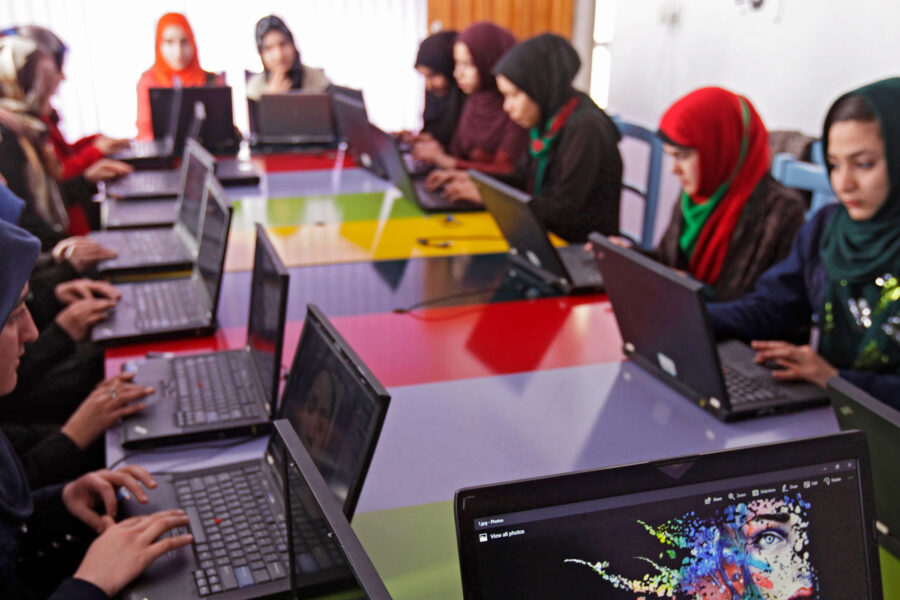Digital sovereignty can further human rights
In a global digital age, is protecting national sovereignty compatible with upholding human rights? How can the international community protect vulnerable populations from the external forces seeking to use digital infrastructure to control them?
Cyberspace — Global

Given sovereignty’s origins in authoritarian settings, sovereignty in cyberspace has been criticized as a cover for digital rights violations by states. However, the recent reclaiming of the concept suggests that it can be deployed legally, morally, and politically as a tool to challenge rather than entrench existing power asymmetries and further human rights.
Sovereignty itself is an amorphous concept that has been developed and utilized to further a range of interests and perspectives. First coined by European colonizers to appropriate land from indigenous communities in the 17th and 18th centuries, the term was reclaimed by newly independent states in the decolonization era of the 1960s to stake claims over natural resources and forge a more equitable international economic order. Digital sovereignty is a similarly amorphous concept that has been used in a variety of contexts.
In this article, I demonstrate (with the help of examples) how digital sovereignty can both enable and undermine human rights. This depends on whether the concept is used in contexts that entrench the relative power of a dominant entity or in those that challenge extant power and its abuse. This combination of digital sovereignty and human rights is crucial for promoting digital transformation across the world and for attaining the Sustainable Development Goals.
Safeguarding citizens
The first instance is a state utilizing its sovereignty to safeguard the rights of its own citizens against either the private sector or other states. An important example of this is the European Court of Justice (ECJ) invalidating data transfers to United States territory due to the unbridled surveillance conducted by US intelligence agencies on the data of foreigners, including European citizens. The ECJ judgment held that these practices did not comply with the privacy protection and grievance redressal standards in the EU Charter of Fundamental Rights.
The European Court’s action furthers a rich legislative and judicial tradition across the European Union that places individual rights at the center of policymaking. Legislation including the Digital Services Act, Digital Markets Act, and the General Data Protection Regulation also assert jurisdictional control over technology companies to protect individual rights and constrain the market power of individual firms.
Clearly, sovereignty is being used on behalf of citizens to challenge the asymmetric surveillance capabilities of the US and the power of large technology companies. Consequently, these are positive examples of “digital sovereignty” discourse and practice.
Resisting international rules
The second case is that of a state resisting internationally imposed rules that constrain domestic regulatory autonomy.
For two decades, the developing world has objected to internationally binding rules on digital trade. Binding digital trade measures would restrict domestic authority to, among other things:
- compel source code disclosure for purposes such as algorithmic auditing
- impose customs duties on electronic transmissions
- cultivate regulations that aid local businesses and their broader developmental interests
To counter these rules, the developing world has defended its “policy space,” understood as the autonomy to create rules without external interference. The autonomy created through policy space is intrinsic to non-interference and state sovereignty.
These narratives have been strongly contested by the developed world since 1998 when e-commerce discussions at the World Trade Organization commenced.
However, in an interesting U-turn, this reasoning was also used by the US trade representative to turn its back on digital trade rules that would hamper its own regulatory autonomy and sovereignty. After a period of sustained campaigning by workers’ rights activists and progressive lawmakers, the US too sought its “policy space” to regulate Big Tech and protect its citizens from external security threats posed by geopolitical adversaries. The concept of “policy space” or decision-making autonomy that aids a state’s developmental interests and furthers worker rights certainly helps challenge asymmetries.
Communities taking back control
These two instances of positive digital sovereignty involve states using the concept on behalf of their citizens. While sovereignty is generally associated with the rights of states (due to the historic origins of the term), the same concept has been used by indigenous communities to assert control over resources and heritage that they argue should rightfully belong to them.
Likewise, digital sovereignty has also been used by indigenous communities to voice their interests. The Māori community in New Zealand have reasserted rights over their data, which forms an inviolable part of their cultural heritage. The extraction and exploitation of this data without consent reeks of “digital colonialism.” Asserting “sovereignty” over data enables the Māori community to signal their autonomy and take back control. They have channelized this concept into legal processes through which they ensure that the collection and storage of their health data is done in accordance with Māori values.
… but still a shield for states
To be sure, these positive use cases of digital sovereignty need to be contrasted with instances where it serves as a shield for state impunity. Authoritarian states often misuse the concept of digital sovereignty to justify state-backed internet shutdowns or online content restrictions – as with China’s Great Firewall. Such measures privilege the state at the expense of individuals. In these cases, it is used by the powerful to entrench power and undermine the rights and interests of the relatively powerless. The application of international human rights law online is therefore necessary, especially in such instances, to hold states accountable.
Human rights discourse is an important tool for empowering individuals and communities. On their own, however, human rights are not enough to challenge power asymmetries and concentration, which create an uneven playing field that stifles the equitable assertion and enforcement of human rights. With the right checks and balances, digital sovereignty and human rights can coexist – to create a more empowering digital ecosystem for individuals and groups alike.





